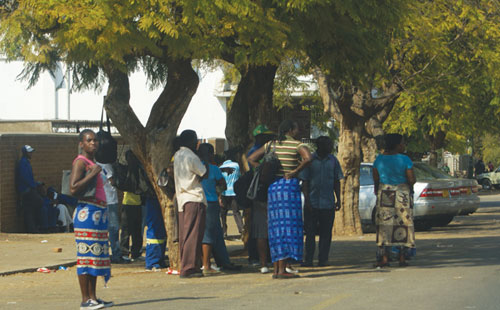
The clear message by the South African government last week that the 250 000 Zimbabwean immigrants given special work and residence permits will have to return home soon should be a wake-up call for the government.
Zimbabwe has one of the highest unemployment rates in the world with some estimating it at over 80% of the population.
The country’s ever increasing universities and tertiary institutions release thousands to the job market every year yet the government does not seem to be in a hurry to find a sustainable jobs strategy.
There are no clear figures on the number of Zimbabweans who have sought economic refuge in South Africa, but some estimates put them in millions.
However, the majority of them are not in that country legally and the end of the Zimbabwe Documentation Project, a dispensation that saw immigrants being given an opportunity to regularise their stay, is likely to see a resumption of mass deportations.
South Africa’s Home Affairs minister Malusi Gigaba on Friday said renewing permits for the beneficiaries of the Zimbabwe Documentation Project could clog the South African government’s permit system.
Home Affairs minister Kembo Mohadi is reportedly keen to meet Gigaba to discuss the latest developments, but it is unlikely that South Africa would reverse its decision on the issue of Zimbabweans.
The mass migration to South Africa especially by Zimbabweans from the south-western provinces of Matabeleland, Bulawayo, the Midlands and Masvingo has for a long time shielded successive Zanu PF governments from fulfilling their mandate of creating jobs.
- Chamisa under fire over US$120K donation
- Mavhunga puts DeMbare into Chibuku quarterfinals
- Pension funds bet on Cabora Bassa oilfields
- Councils defy govt fire tender directive
Keep Reading
It is high time the government took its responsibility seriously and ensured, that its people do not have to suffer the indignity of being treated as a nuisance by foreign countries.
The government should be taking serious steps to ensure the resuscitation of companies especially in cities such as Bulawayo.
At his inauguration last year, President Robert Mugabe bemoaned the fact that Bulawayo had become a “scrapyard” in reference to the closed factories.
It is almost a year since Zanu PF received its long yearned for mandate to rule alone, but the country is still waiting for the new government to honour it’s promises for two million jobs.
Instead of scrambling to forestall the imminent return of the Zimbabweans in South Africa, the government should be burning the midnight oil for a sustainable jobs strategy.










